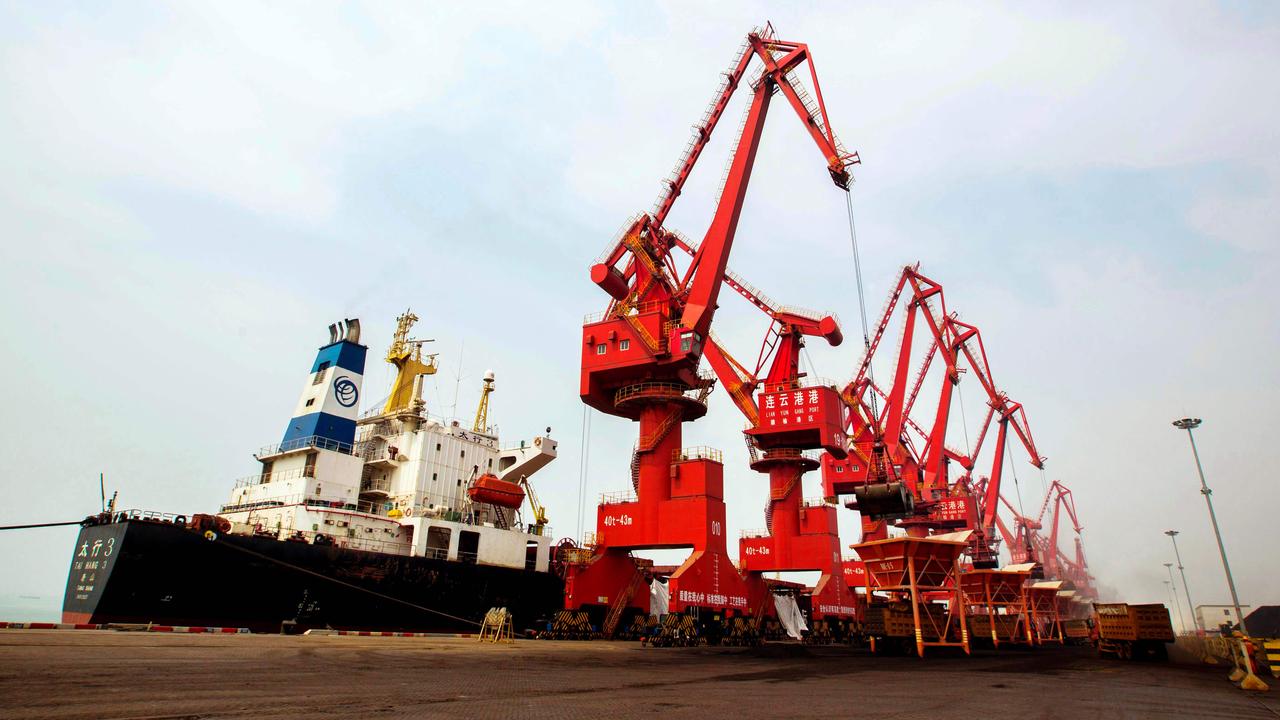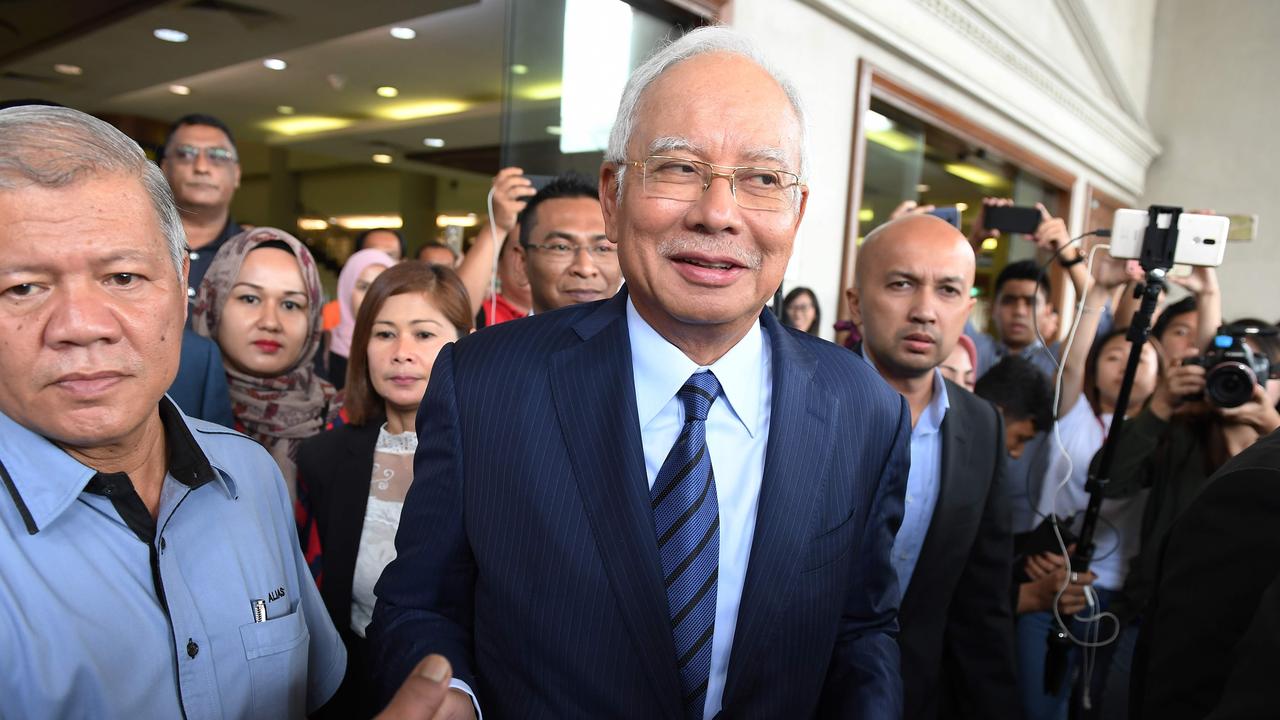James Packer’s case of Chinese myopia
James Packer has not understood China as well as he should, given its significance to his business plan.

That doesn’t invalidate the bullish positions that James Packer has taken on Australia’s relationship with China.
But it does indicate that he hasn’t understood the country as well as he should, given how much he has bet on its driving his core business plan.
The $A630 million he lost on Monday from his personal stake in Crown, made that clear.
He has spoken out strongly and consistently for closer China links. In a speech to the Asia Society three years ago, he said: “I have made many, many mistakes in my life, but investing in China” — by which he means principally in casinos in its special administrative region of Macau, though he is also an investor in the highly successful Chinese iteration of Seek, Zhaopin — “is not one of them.”
He described how Dr Mark Faber, whom he called “a well known US investment analyst” — though “Dr Doom” is very Swiss, and made his name in Hong Kong, now living in Thailand — found that “80 per cent of Chinese travelling outside the country for the first time head for a casino, and 90 per cent of Chinese who travel to the US visit Las Vegas.”
Packer said: “It’s a staggering figure” — maybe a little too staggering, however — “and Crown is responding to this market.”
He said: “No one should be in any doubt, the wealthy Chinese middle class want luxury travel, luxury hotels, signature restaurants, quality entertainment and high-end retail. And yes, luckily for Crown they also don’t mind spending some time at our gaming tables.”
The political corollary is that Packer praised the then Foreign Minister, who has become the Australian political elite’s most outspoken China advocate, saying “I urge whoever wins the next federal election to ensure Bob Carr is at the forefront of our diplomatic relations with China.”
He said: “China by its actions has been a good friend to Australia, and both countries have benefited greatly from the relationship … With the rise of China, we must have a more independent foreign policy.
“We need to stop viewing China as a strange foreign land, which has little in common with Australia. The truth is the complete opposite.”
However, Packer appears to have failed to comprehend just how different China remains from Australia. However good his apparent guanxi, networks, within China, they count for little or nothing when core values of the ruling communist party are at stake.
He said in that speech that “it often amazes me that so many senior corporate leaders, public servants and MPs have not made the trip to China and still view it as a communist state.”
It is even more extraordinary that Packer should have made the trip to China many times, and completely failed to recognise where he was: in a country whose core feature, running through almost every facet of life, is the communist party.
This myopia has cost him massively, first in Macau, now at home base in Australia, where his business plan has been based heavily on Chinese high rollers.
This party retains core values, which under its present leader Xi Jinping have been burnished and amplified and brought back into the centre of political decision making and of state activity. The party culture doesn’t like golf, for instance, it doesn’t trust — though it has learned grudgingly to live alongside — religion, it shuns gambling. Of course, many party cadres gamble. But they do so at massive risk.
Xi is not the kind of leader who plays around, who might whisper to simpatico billionaires: “Yes I know we call ourselves communists, but that’s just out of habit — really we’re just the China Party, we’re cosmopolitan chaps who want to help businesspeople help themselves.”
His communism is serious. He has made many speeches about the importance of returning to a full understanding and implementation of the theories of Marx and of Mao.
So, when soon after he became leader, the National People’s Congress passed legislation that extended China’s outlawing of all gambling — except some state-sponsored charity lotteries — to all promotion of gambling, this was a serious move.
Hua Jingfeng, a senior figure at the Public Security Ministry at the ministry, told media eight months ago: “Some foreign countries see our nation as an enormous market, and we have investigated a series of cases.
“A fair number of neighbouring countries have casinos, and they have set up offices in China to drum up interest from Chinese citizens to go abroad and gamble. This will also be an area that we will crack down on.”
Such statements are not usually made lightly in China. Why did Crown, why did its key owner, not comprehend its significance? It was a warning with utterly tragic consequences for 18 people, who are right now in detention in China, facing the prospect of a lengthy period in prison there, and of course for their devastated families.
Xi has made his campaign against corruption his hallmark policy. At first, highly popular, it generated fresh political capital for him. More recently it has been perceived as politically directed, possibly even a net negative. But he is certainly persisting.
Packer said as the campaign began to hit Macau’s casinos’ bottom lines: “We are absolutely in favour of the Chinese government contin¬uing to tackle corruption.” He believed that as long as the casinos attempted to ensure they didn’t host players who patently made their money corruptly, their soaring turnovers would soon return.
But that hasn’t happened. The Packer-Lawrence Ho City of Dreams joint venture is being required to submit to Xi’s rather different “China Dream.”
Just going to Macau carries a risk if you’re a government or state enterprise official. Such a visit may well trigger an audit, and who knows what the hugely feared Central Commission for Discipline Inspection may unearth.
The core process of establishing credit for Chinese high rollers, even if it comprises only a quiet dinner concluded with a ganbei — “dry glass” — toast, and of facilitating their visits to Australian resorts that contain casinos, is a fraught one. For it is difficult to argue that such conversations are not primarily intended to encourage gambling. These may be “integrated resorts,” but the gaming usually subsidises the rest.
The raid that caught up senior executive Jason O’Connor and the rest would have been long planned, for such complex co-ordination to work as well as it did. The alarm bells should have also have been ringing loud and long for Crown and its biggest shareholder, that their employees in China were in grave peril.







Crown Resorts has experienced over the last week, a septimana horribilis, seven horrible days.